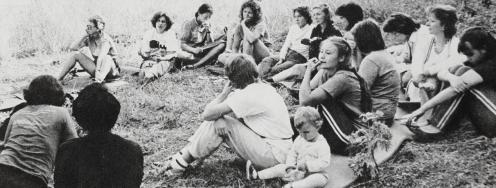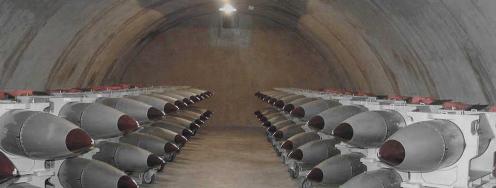European Leadership Network Visits Washington
Last week, a British-German delegation of the European Leadership Network (ELN) made the rounds in Washington. ELN, a non-profit, non-partisan organization based in the United Kingdom, works to promote the idea of multilateral nuclear disarmament and non-proliferation. The group has built and continues to expand an impressive, high-level network of senior political, military and diplomatic leaders.
On Thursday, Ploughshares Fund, a supporter of ELN, was pleased to host a meeting with the visiting delegation and a number of top nuclear experts in Washington. The group focused on next steps in nuclear disarmament and non-proliferation talks, and shared thoughts on the changing global threat environment.
The discussion reflected particular interest in NATO and the strategic and nonstrategic nuclear weapons that remain on the European continent. There is widespread consensus, from military leaders to nuclear experts, that these weapons have limited strategic value. Yet the US still has between 150 and 200 tactical nuclear weapons deployed throughout Europe. Foreign Policy’s Stephen Walt recently highlighted this curious situation, arguing:
There is no threat of a conventional invasion of Western Europe, and thus no need to "link" the U.S. strategic deterrent to Europe's defense via tactical weapons physically deployed on the continent.
The challenge is to assure all NATO members that they can rely on the collective security the alliance provides without holding onto these useless Cold War weapons. That is where ELN comes in: creating opportunities for improving cooperation between the US and Europe to advance a progressive agenda through increased information sharing and closer relationships.
In addition to the question of tactical nuclear weapons in Europe, the delegation talked about opportunities for engagement on the cost of nuclear weapons modernization in Europe, US-Russia relations, sub-strategic weapons in Europe, Missile Defense, the proposal for a Fissile Material Cut-off Treaty and the possibility of a WMD Free Zone in the Middle East.
With such a wealth of issues to tackle, it is no surprise that the meeting was both highly informative and productive.
The British-German delegation included four, bipartisan former ministers and parliamentarians. They include Lead Delegation Members Lord Desmond Browne, former MP and British Defense Minister (Labour Party) and Hon. Uta Zapf, Member of the German Parliament (Social Democratic Party) as well as Hon. Volker Ruehe, former German Defense Minister (Christian Democratic Party) and Sir John Stanley, Member of the British Parliament (Conservative Party).




